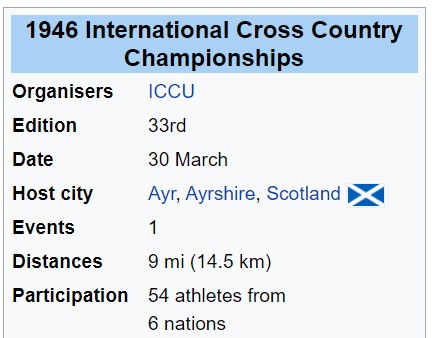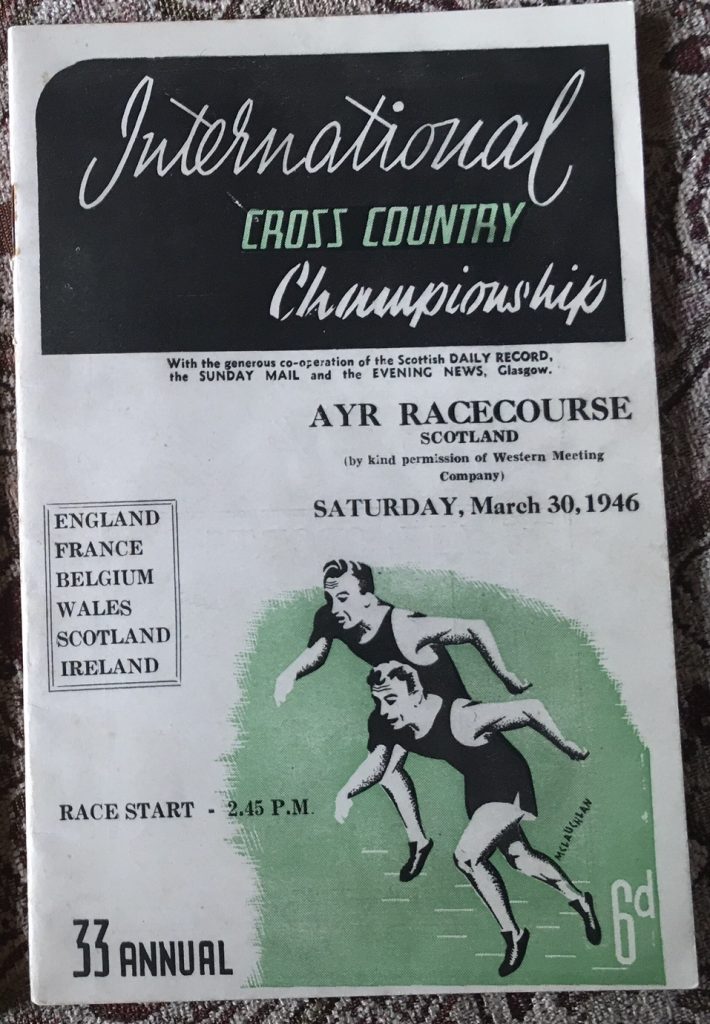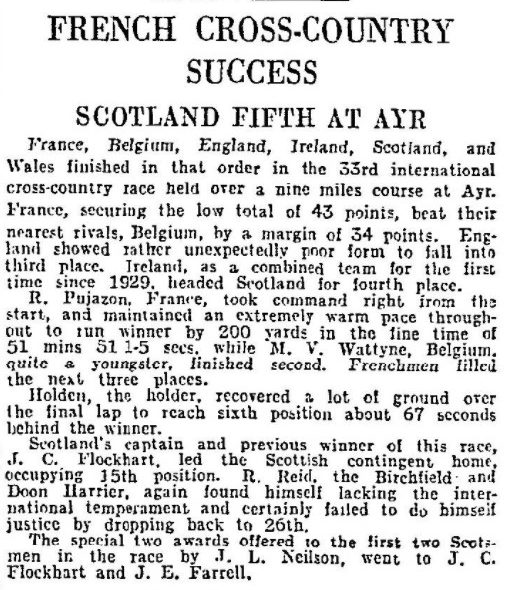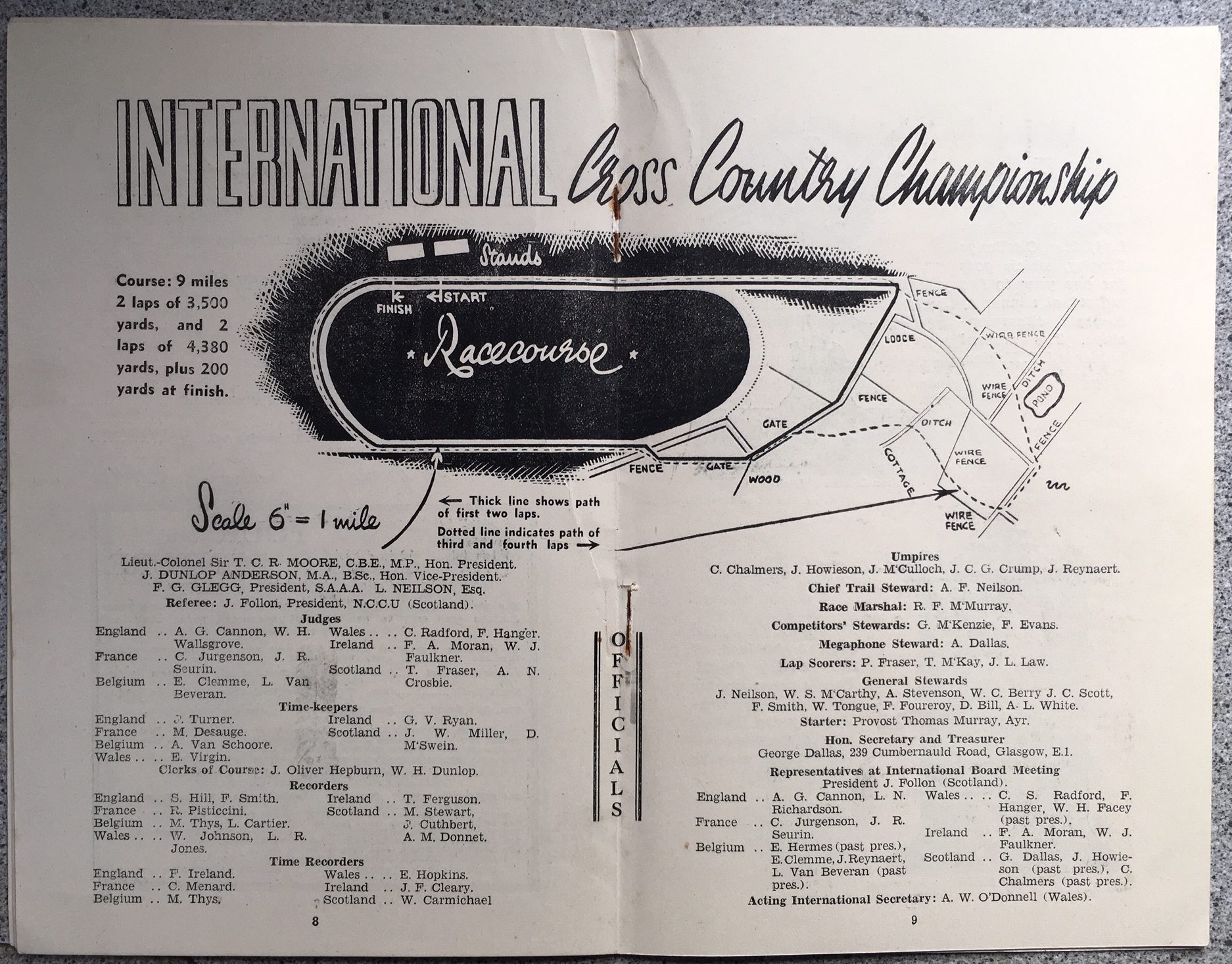Coming immediately after the 1939-45 War, the race was run at Ayr and was contested by six nations and the other basic facts of the race are noted above. The other basics about the victory at both individual and team by France are below.
The race was the first international since before the War and the venue chosen was that used on the last time it was held in Scotland. Colin Shields says of the race that it was a tremendous success and goes on to say “NCCS secretary George Dallas, who had attended every international and ICCU Council meeting since 1921, was the guiding light behind the organisation and Tom Fraser acted as Appeal Fund Secretary. The French and Belgian teams had a long and tiring journey by ship and rail to Scotland, and the appearance of England, Ireland and Wales ensured a full turn out of all six member countries. Scottish hospitality was fulsome, with teams and officials being taken to Hampden Park and Rangers football ground on the day before the race, with Glasgow City Council entertaining the teams to dinner at the City Chambers, and a celebratory after race banquet in Ayr Town Hall on Saturday evening. To complete the overwhelming Scottish hospitality the teams and officials each received a beautifully bound volume of Robert Burns poems and a tartan tie.”
Programme cover and course map from Graham MacIndoe
The Scottish team was Jim Flockhart (Shettleston Harriers), Emmet Farrell (Maryhill Harriers), Bobby Reid (Birchfield, Willie Sommerville (Motherwell YMCA), Harry Howard (Shettleston) and Gordon Porteous (Maryhill). All of whom were very good runners indeed with Flockhart having won the race in 19137 and Farrell having finished in the top ten in both 1938 and 1939. The team looked good, but like the rest of the Home Countries, it did not perform well. Read the Glasgow Herald report below.
The tone of disappointment that characterised comments on the Scottish team and its individual members, was mild compared to the criticism of Emmet Farrell himself who, writing in ‘The Scots Athlete’, said, “The results of the International Cross-Country Championship threw into relief the poverty of British long distance running. England were poor, but still far in advance of Scotland’s inglorious display … at the same time it should be said in mitigation that the bad weather and fast, almost track-like course did not help our boys … also the slip-shod arrangements made for them prior to the start were not helpful. eg Mr Crump, the English team manager button-holed a certain well known Scottish athlete personality asking why the Scottish team should be walking miles round the course on the morning of the race. … It is a sad commentary on Scottish cross-country running when the first Scotsman is only 15th.”
Colin Shields also picked up on Jack Crump’s point when he said “Scotland, not helped by their team manager having the team walking miles round the course just hours before the race, finished a distant fifth.” Among the reasons advanced for the poor showing of the domestic teams in general and Scotland in particular were –
- Severe food rationing in force;
- Except for Glasgow and the West of Scotland, there were no international class athletes anywhere else in the country.
Complete detailed men’s results are at the wikipedia page – 1946 International Cross Country Championships – Wikipedia




